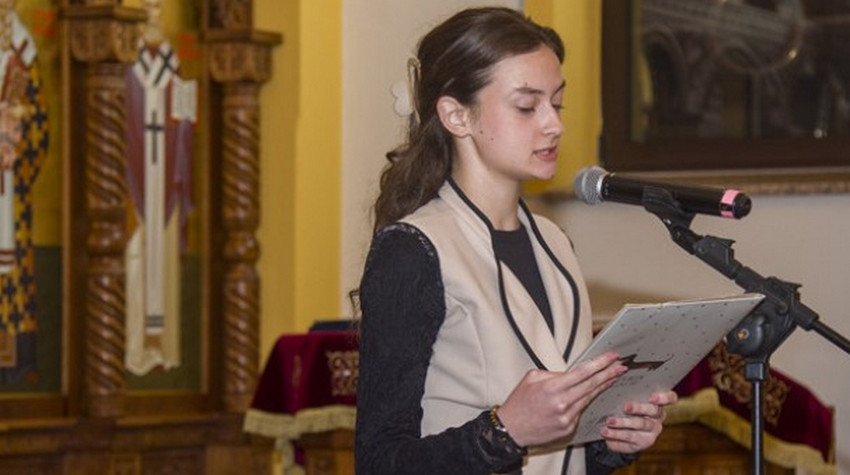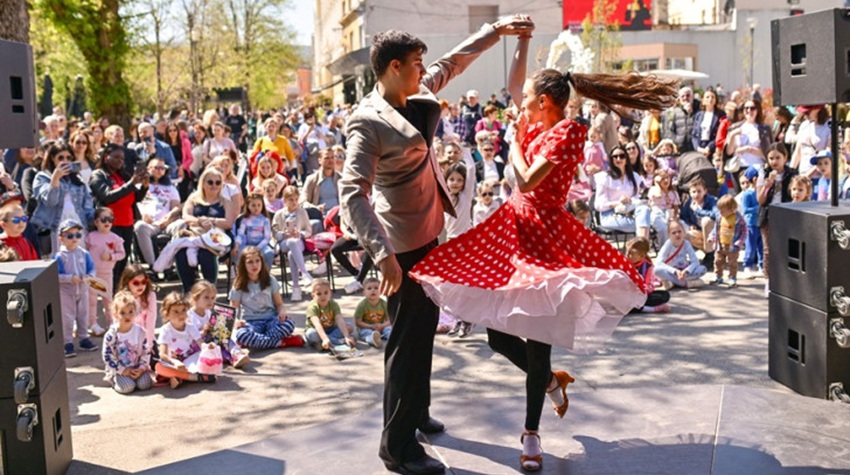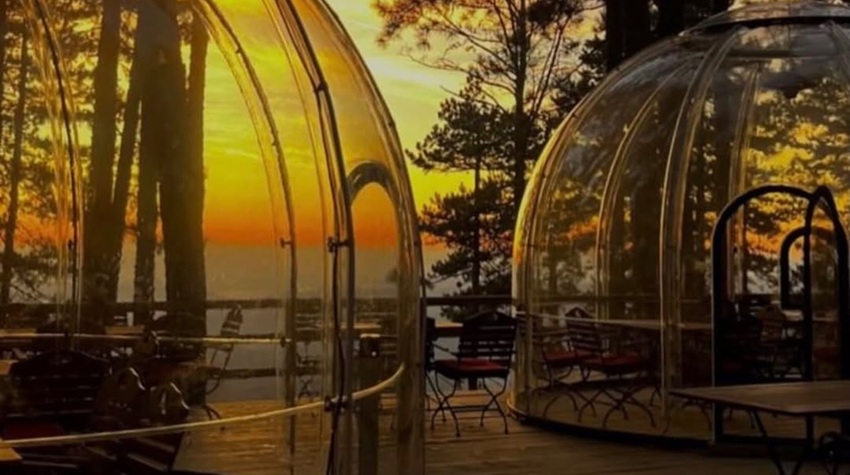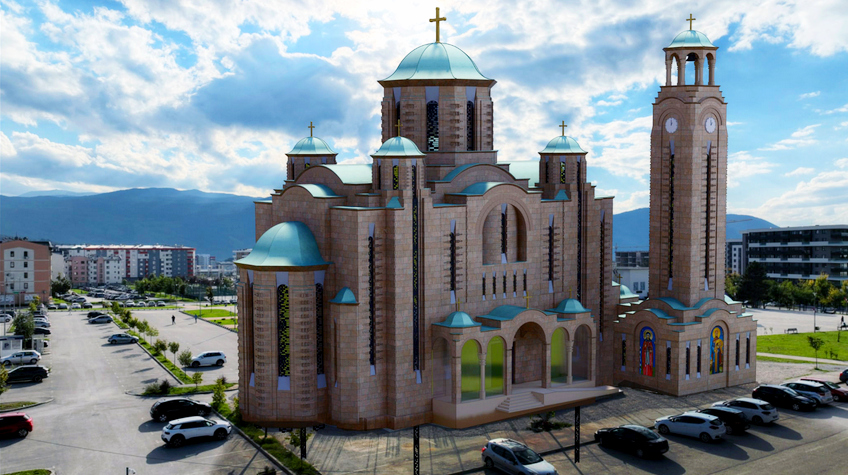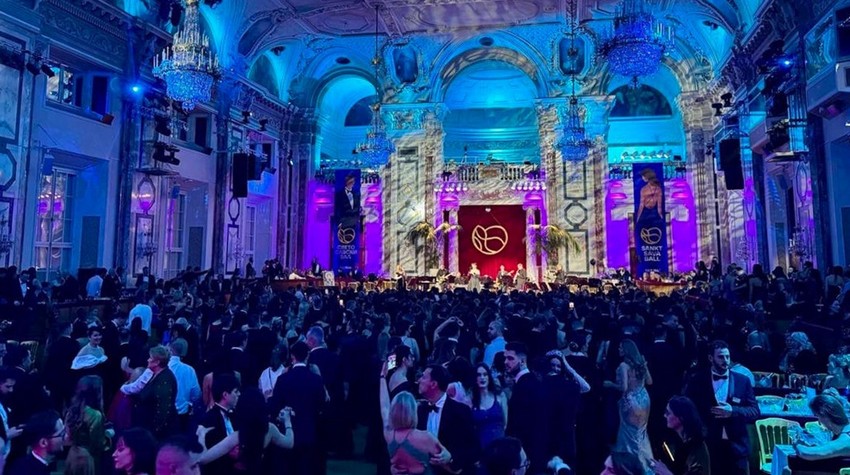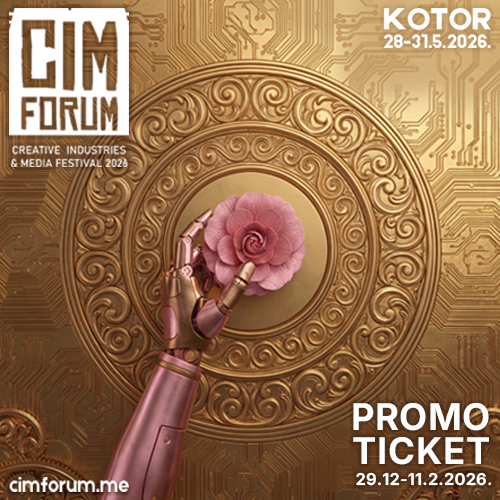HYDROGEN BUS TEST DRIVE ON JAHORINA
The company "Skodex" from Derventa organized an international forum last week on Jahorina titled "Use of Hydrogen in Industry and Transport," which included a test drive of the hydrogen-powered bus "Toyota Caetano" from East New Sarajevo to Jahorina, marking the first of its kind in Bosnia and Herzegovina.
We believe this forum and the first zero-emission bus ride
will be the starting point for further development of these technologies and
their application in Bosnia and Herzegovina - stated Radiša Nunić, the market
development director for "Wortington Enterprises" and one of the
organizers.
Opening the International Forum on Jahorina, Staša Košarac,
Deputy Chair of the Council of Ministers, said that holding this event confirms
that the Republika Srpska is a place for dialogue on contemporary issues.
Košarac pointed out that the forum and the first ecological
bus ride in BiH were an excellent opportunity to promote work on defining green
ecological policies, adhering to all international agreements signed by BiH,
such as the Green Agenda, the Sofia Declaration, and the Energy Community
Treaty.
Based on experiences in this sector and according to the
needs of local communities in Republika Srpska and the Federation of BiH, we
will define certain projects with relevant ministries and apply to donors,
primarily the Green Climate Fund and other available funds to implement
ecological policies - Košarac said.
Mladen Filipović, Head of the Republika Srpska Representation in Austria, expressed satisfaction that the first forum of this kind was held in Srpska and that high-ranking experts participated.
Contacts were made through the activities of the Republika
Srpska Representation in Austria and the diaspora, especially in economic
terms. This is one of the focuses of the Government of Republika Srpska and the
Representation in Austria. Through cooperation with the Austrian Chamber of
Commerce, our institutions, and entrepreneurs, we managed to bring a
significant conference held across Europe here. We will continue to support
such activities and especially the implementation of such long-term development
projects - emphasized Filipović.
The Forum on Jahorina was held within the "JIVE" and "JIVE 2" projects, financed by EU funds for development and innovation. As part of this project, 310 fuel cell buses will be deployed in 17 European cities and regions.
These vehicles can now travel about 400 km with a
consumption of around 6 kg of hydrogen per 100 km, allowing constant use in
urban public transport with the necessary infrastructure. Unlike electric
buses, they are easier to refuel and operate in low temperatures, with only
water and heat as byproducts. However, they are significantly more expensive
than traditional buses.
The forum discussed the "JIVE" projects, ways of
financing projects and ideas by the EU, the functioning of the Vienna public
transport company "Wiener Linien," and potential uses in air
transport.
The company "Messer" presented its offer of an
entire system, including hydrogen-powered vehicles and associated refueling
stations, while "Toyota" showcased its third-generation hydrogen
vehicle models, offering promotional rides of the "Mirai."
Ministers, representatives, and media had the opportunity to
try out the technology that is gradually becoming more used in passenger
transport in urban areas, including Staša Košarac, Mladen Filipović, Miroslav
Vujičić, Dragomir Gagović, and judo world champion Nemanja Majdov.
ABOUT JIVE 1 AND JIVE 2 PROJECTS
Mirela Atanasiu, Executive Director ad interim of Clean
Hydrogen Partnership, stated:
I am proud to see that with its 3rd Road Show in Romania,
Greece, Bulgaria, and Bosnia and Herzegovina, our project JIVE continues to
showcase hydrogen buses and refueling stations to interested local authorities
in South-Eastern Europe. It follows the success of the previous roadshows in
Central Europe and the Baltics last year, generating interest in the commercialization
of such fuel cell buses as a first step in the decarbonization of public
transport in cities.
With funding from the Clean Hydrogen Partnership and
additional strategic collaboration with regional authorities and industrial
partners, JIVE is a successful example of how we can position the EU as a
front-runner to become carbon-neutral by 2050.
The JIVE and JIVE 2 projects are financed by the Clean
Hydrogen Joint Undertaking under grant agreements no. 735582 and 779563. The
Clean Hydrogen Undertaking receives support from the EU’s research and
innovation programs Horizon 2020, Hydrogen Europe, and Hydrogen Europe
Research.
The JIVE and JIVE2 projects, which started in January 2017
and January 2018, respectively, will deploy approximately 300 zero-emission
fuel cell buses and associated infrastructure (under the MEHRLIN project) in 16
European cities and regions by the first half of the 2020s, representing the
largest implementation in Europe so far. The buses will be deployed in cities
and regions in France, Germany, Italy, the Netherlands, Spain, and the United
Kingdom.


